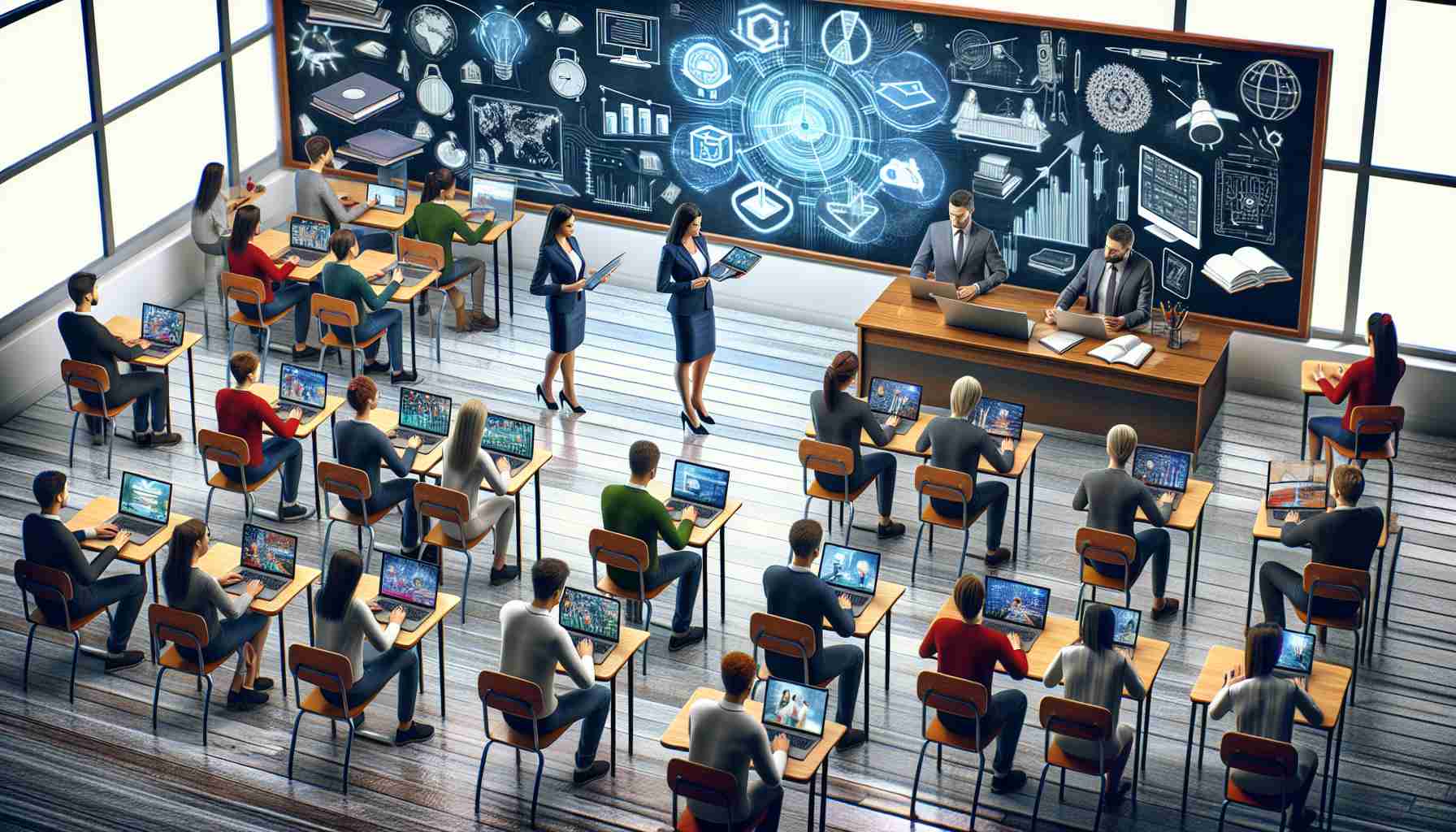Technology has revolutionized various aspects of our lives, and education is no exception. With the integration of technology in educational settings, students now have access to a wealth of information and resources at their fingertips. This shift has sparked a transformation in teaching methods, curriculum development, and learning outcomes.
In the past, traditional classroom settings relied heavily on textbooks and lectures. However, technology has opened up new avenues for interactive and engaging learning experiences. Students can now participate in virtual field trips, conduct scientific experiments through simulations, and collaborate with peers on projects using online platforms. These digital tools not only enhance learning but also foster critical thinking, problem-solving, and creativity.
Moreover, technology has made education more accessible and inclusive. Online learning platforms provide flexibility for those who are unable to attend traditional classes. Students from remote areas or with physical disabilities can now access quality education without the need to travel or face mobility constraints. Additionally, technology offers personalized learning experiences, allowing students to progress at their own pace and cater to their individual learning styles.
The integration of technology in education also prepares students for the future job market. In today’s digital age, technological literacy is crucial for success in various fields. By incorporating technology into the curriculum, students develop digital skills that are in high demand in the workforce. They gain proficiency in using productivity tools, analyzing data, and adapting to new technologies, making them well-equipped for the digital economy.
While technology has brought numerous benefits to education, it is important to ensure equitable access and address the digital divide. Not all students have equal access to technology and the internet, creating disparities in educational opportunities. Efforts must be made to bridge this gap and provide technology resources to all students, regardless of their socioeconomic backgrounds.
In conclusion, technology has significantly impacted education by transforming teaching methods, improving access to resources, and preparing students for the future. It has revolutionized the way we learn and opened up new possibilities for interactive and personalized education. As we continue to embrace technology in education, it is crucial to prioritize equitable access and bridge the digital divide to ensure that all students can benefit from these advancements.
The integration of technology in education has led to the emergence of a thriving industry focused on developing and providing digital tools and platforms for educational purposes. The EdTech industry, as it is commonly known, encompasses a wide range of companies and organizations that aim to enhance teaching and learning through technology.
According to market research, the global EdTech market is expected to reach a value of USD 285.2 billion by 2027, growing at a compound annual growth rate (CAGR) of 17.9% during the forecast period. This significant growth can be attributed to the increasing adoption of digital learning solutions, the rise in internet penetration and smartphone usage, and the growing demand for upskilling and lifelong learning.
The market for online learning platforms, such as Massive Open Online Courses (MOOCs) and Learning Management Systems (LMS), has experienced substantial growth. These platforms offer a wide range of courses and resources, allowing learners to acquire new skills and knowledge from the comfort of their own homes. Some popular online learning platforms include Coursera, Udemy, and Khan Academy.
Another area of the EdTech industry that is projected to witness significant growth is virtual reality (VR) and augmented reality (AR) in education. These technologies provide immersive and interactive learning experiences, allowing students to explore virtual environments and engage with virtual objects. The global market for VR and AR in education is expected to reach USD 700 million by 2026.
Despite the rapid growth and potential of the EdTech industry, there are certain challenges and issues that need to be addressed. One major concern is the lack of teacher training and professional development in using technology effectively in the classroom. Many educators feel overwhelmed by the rapid pace of technological advancements and struggle to integrate technology into their teaching practices.
Another issue is the need for data privacy and security in educational technology. With the collection of vast amounts of student data, it is crucial to ensure that proper safeguards are in place to protect the privacy and confidentiality of students’ information. Additionally, there is a need for transparent data usage policies to address concerns about algorithmic bias and the ethical use of student data.
In summary, the EdTech industry has transformed education by providing innovative tools and platforms that enhance teaching and learning. The market is expected to grow significantly in the coming years, driven by the increasing demand for digital learning solutions. However, it is important to address the challenges related to teacher training, data privacy, and security to ensure the responsible and equitable use of educational technology.







